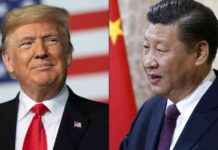The employees at the Audi factory in Brussels may be able to rest a little easier, knowing that there is still hope that the factory can continue to operate under a new owner. With the European Union imposing special tariffs on cars imported from China, many Chinese manufacturers are considering building new production facilities in Europe or acquiring existing ones to avoid these additional costs.
One of these manufacturers is NIO, who Belgian media reports will make a formal offer to acquire the Brussels Audi plant later this week. NIO’s intention seems to be to use the plant exclusively for vehicle assembly in Europe, thereby avoiding the special tariffs added to the existing 10 percent tariffs.
As we mentioned in a recent post, Audi has decided to divest itself of the Brussels plant, as they do not believe it will be beneficial to the company in the future. Therefore, if NIO’s offer is realistic, it could be viewed very positively by the German manufacturer.
Complications Ahead
However, relations between the two companies have not been the best in recent years, and it is unclear how this may affect the negotiations. Audi recently sued NIO in Germany for not disclosing the names under which they intended to market their vehicles in the European market, as they believed they were too similar to the names typically used by Audi. The lawsuit was eventually won in court, forcing NIO to make corrections.
Nevertheless, NIO is not the only Chinese manufacturer interested in establishing a presence in Europe. BYD is already building its first plant in Hungary, near Szeged, with an annual production capacity of 300 vehicles, and is also looking for a site for a second floor. While SAIC Motor appears to be considering establishing itself in Spain to produce MG Motor vehicles, particularly in Galicia, other locations outside of Spain such as Hungary or the Czech Republic are not ruled out due to their lower labor costs.
On the other hand, Chery has already signed an agreement with Ebro EV Motors in Barcelona to produce Omoda brand electric vehicles, with the goal of achieving an annual production capacity of 150 vehicles by 2029. Meanwhile, Leapmotor has opted for a joint venture with Stellantis, which produces its small EV T03 in Poland alongside Jeep and FIAT models.
These developments indicate a growing trend of Chinese manufacturers looking to expand their operations into Europe, which could have significant implications for the automotive industry in the region. As competition intensifies and new players enter the market, it will be interesting to see how established manufacturers respond to these challenges and opportunities.

















